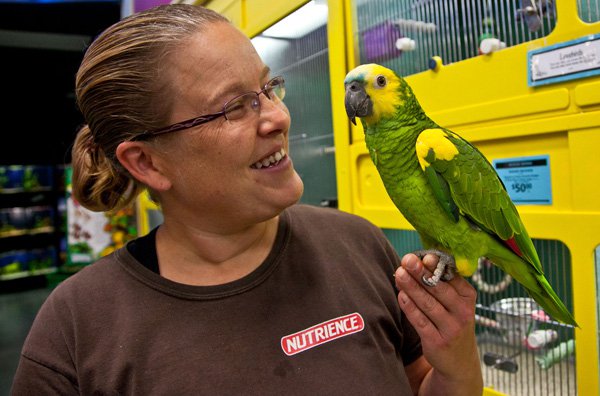
Over the past few years, pet insurance has been becoming more popular and common. Many pet owners have struggle with the question of whether pet insurance is a smart financial choice or a waste of money. The answer depends on the individual and the type of policy.
What is covered?
Some plans are very comprehensive and may include preventive healthcare, such as vaccinations and tooth cleanings. These plans tend to cost more in premiums each year, but will also cover more of the ongoing costs for your pet.
Other plans may be considered catastrophic coverage. If you have this type of plan, most veterinary care will be paid out of pocket. The coverage will kick in only when costs are very high or for serious conditions. These plans are cheaper, but you may still find yourself paying vet costs yourself and may not ever need the coverage.
Be careful to look at what is not covered for all types of plans. Certain things, such as hip dysplasia, may not be covered at all by some plans. In other cases, illness or injuries may be considered "pre-existing" and care for them may not be covered. In addition, plans may or may not cover medications or dental care.
Deductible: Per incident or per year?
Deductibles, co-pays, and premiums can vary between pet insurance companies, depending on what is offered. One thing that may not be considered is that plans treat deductibles differently. For some plans, the deductible may be per year, whereas for others it is per incident. For example, if your pet suffers an injury in March and you pay your $500 deductible with insurance covering the rest, you may be surprised to learn that you must pay your $500 deductible again for an unexpected surgery in August. For other plans, the deductible may be met with the first $500 in eligible costs at the start of each year.
Pre-Existing Conditions
Pre-existing conditions can be hard to figure out and the rules are different for different insurance companies. Some pre-existing conditions are easy to spot. If your dog is diagnosed with diabetes before you sign up for a plan, the illness becomes a pre-existing condition and treatment for it will not be covered. In other cases, pre-existing conditions can be less obvious. If a cat broke its leg and years later injures it again, the injury may be considered pre-existing even if it does not appear to be directly connected.
Some plans will reconsider pre-existing conditions each year. When it comes time to renew your plan, diseases that were covered for your pet this year may no longer be eligible for coverage.
Aging Pets: What will increase your costs?
Depending on the plan, you may find that your costs will increase from year to year as your pet ages or develops medical conditions. In other plans, you may not be able to renew coverage at all if your pet has costly conditions or is older.
Is pet insurance worth the cost?
The big question is whether the costs are worth it for you. The amount of the premiums will depend on the level of coverage that you select. Most plans also include a deductible and co-pay. To figure out what your "break even" point is, add your annual premium, which you will pay even if you never make a claim, and the deductible, which you will pay out of pocket. Then, consider whether your covered vet bills are likely to exceed that amount. Anything over the break even amount will cost you less with the insurance plan in place. In many cases, sticking the premium amount in a high interest savings account that is designated for pet emergencies may be a better financial bet.
For some pet owners, the pet insurance may be worth the cost just for the peace of mind. If you don't have easy access to credit or savings, pet insurance may be the difference between having the money to treat your pet in an emergency and making tough decisions about whether you can afford treatment.
Ultimately, deciding whether to buy pet insurance is a personal decision and there is no clear right or wrong answer that applies to every pet owner. If you do decide to obtain pet insurance, be sure to research the company. Read the fine print of the coverage details and look for on-line reviews. Reviewers may have helpful feedback on how quickly the company pays claims and how often claims may be denied. Choosing a company with a good reputation can help make your pet insurance purchase a smart choice rather than a financial mistake.
 Steps That Would Find You The Right Pet Sitter
Steps That Would Find You The Right Pet Sitter
 Snails As Pets? The Giant African Land Snail
Snails As Pets? The Giant African Land Snail
 Some Enhanced Insights Into The Traits Of The Cocker Spaniel
Some Enhanced Insights Into The Traits Of The Cocker Spaniel
 Carried Into Battle - The History Of Horses And War
Carried Into Battle - The History Of Horses And War
 The Various Products Which Are Available For The Dogs
The Various Products Which Are Available For The Dogs
 Why Is My Cat Losing Weight? - The 5 Main Reasons
Why Is My Cat Losing Weight? - The 5 Main Reasons
 Why Won’t My Cat Use Their Litter Tray?
Why Won’t My Cat
Why Won’t My Cat Use Their Litter Tray?
Why Won’t My Cat
 Grooming Your Pony
Grooming Your Pon
Grooming Your Pony
Grooming Your Pon
 How Dog Ownership Can Change Your Human Friendships
How Dog Ownership
How Dog Ownership Can Change Your Human Friendships
How Dog Ownership
 10 Unusual Dog Food Ingredients
10 Unusual Dog Fo
10 Unusual Dog Food Ingredients
10 Unusual Dog Fo
 How To Pick Up And Handle Your Pet Lizard, And The Best Pet Lizards For Hands-on People
How To Pick Up An
How To Pick Up And Handle Your Pet Lizard, And The Best Pet Lizards For Hands-on People
How To Pick Up An
Copyright © 2005-2016 Pet Information All Rights Reserved
Contact us: www162date@outlook.com